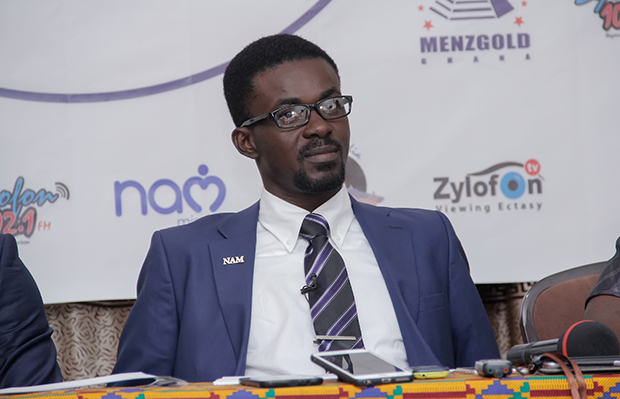Nana Appiah Mensah, aka NAM1
The trial of the beleaguered Chief Executive Officer (CEO) of Menzgold Ghana Limited, Nana Appiah Mensah, aka NAM1, has taken another long adjournment as the prosecution says investigations are still being conducted into the matter.
The prosecution was expected to substitute the charge sheet before the court but ASP Sylvester Asare who is in charge of the case indicated that certain ‘discoveries’ during investigation require that they hold on for now.
He indicated to the court presided over by Harriet Akweley Quaye that investigations were far advanced and they were seeking a long adjournment preferably in first week of January next year.
The judge, however, said she could give a date in January 2019 and asked the prosecution and the defence to rather decide on a date in December.
The case was subsequently adjourned to December 23, 2019.
Trial
NAM1 together with his wife Rose Tetteh and his sister Benedicta Appiah, both at large, are facing a total of 13 counts of defrauding by false pretences, money laundering, abetment and carrying on deposit-taking business without licence.
They are facing six counts of defrauding by false pretences, abetment, money laundering and carrying on deposit-taking business without licence.
His companies – Menzgold Ghana Limited and Brew Marketing Consult Limited – have also been charged with seven counts of defrauding by false pretences, and carrying on deposit-taking business without licence.
NAM1 on July 26 pleaded not guilty to all the charges and the court presided over by Jane Harriet Akweley Quaye granted him bail to the tune of GH¢1 billion (about $185 million) with five sureties, three of which are to be justified.
Additionally, he was ordered by the court to report to the police every Wednesday.
Unable to satisfy the bail conditions, the defence team led by Kwame Boafo Akuffo later filed an application asking for variation of the terms.
The presiding judge after listening to both sides maintained the sum of GH¢1 billion but removed the condition of three of the five sureties to be justified.
BY Gibril Abdul Razak


